Netanyahu puts political survival ahead of tough decisions on Gaza
Israel’s military, the US and Arab governments say a plan is needed to determine who will run the enclave after Hamas.
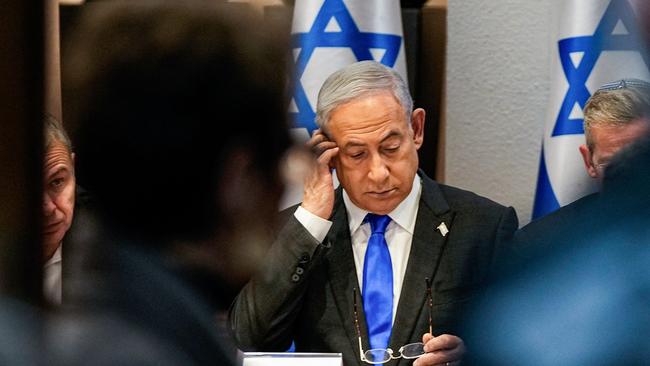
Israeli Prime Minister Benjamin Netanyahu is facing one of the toughest political decisions of his long career: who should govern Gaza after Hamas?
So far he’s dodging it.
The question would be difficult for any Israeli leader, because there are no easy options. It’s especially politically explosive for Netanyahu, however, because any answer that would satisfy Israel’s military and its main international partners, especially the US, also risks detonating his governing coalition and ending his hold on power.
The US and key Arab governments want the Palestinian Authority, which runs parts of the West Bank and is Hamas’s main rival in Palestinian politics, to oversee Gaza. That is anathema to much of Netanyahu’s right-wing Likud party – and especially to his far-right coalition partners, who want Israel to reoccupy and resettle Gaza. Israel’s Defence Ministry rejects that, saying Palestinians must run Gaza. It wants to see a plan enacted as soon as possible, fearing that achievements in the war effort could be rolled back due to a political vacuum in Gaza that allows Hamas to reassert itself.
“Political indecision may harm the progress of the military operation,” Israeli Defence Minister Yoav Gallant said recently, expressing frustration at a lack of discussion inside the government about what the plan is, beyond physically destroying Hamas. “It is the duty of the cabinet and the government to discuss the plan … and to determine the goal,” Gallant said, adding that military action needs a policy to guide it.
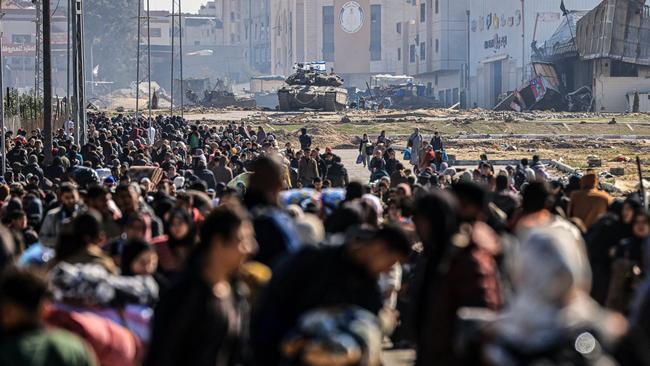
For Netanyahu, the pressure for a decision over Gaza’s future is the biggest test so far of his attempt to keep his political career afloat. The 74-year-old Israeli premier became the country’s longest-serving leader by focusing on security, but he oversaw Israel’s worst-ever security failure on Oct. 7, when major lapses allowed Hamas to attack southern Israel and kill 1,200 people.
Public opinion has turned sharply against him. Netanyahu’s rule depends on avoiding snap elections and keeping his narrow parliamentary majority intact. He has vowed to stay on until he has led Israel to “total victory” over Hamas.
Netanyahu’s hope, say analysts: a visible victory, such as the killing of Hamas’s top leaders in Gaza, would help him to bounce back.
“The longer you can delay and be ambiguous – from his point of view, that’s the best situation,” said Gadi Wolfsfeld, a political scientist at Israel’s Reichman University. “Not to decide is also to decide.”
But current and former officials warn that Netanyahu’s indecision is making it harder to win the war. Last week, 43 former top officials of Israel’s military and intelligence services wrote to the country’s head of state, President Isaac Herzog, calling for Netanyahu’s removal as prime minister. The letter, whose signatories included several intelligence and security chiefs who had worked under Netanyahu, said he “poses a clear and present danger” to Israel, in part because he has refused to define the political goals of the war.
“Netanyahu, even at this dark hour of the gravest crisis in Israel’s history, is trying to escape public accountability and is clinging to power,” the letter said.
Any Israeli leader would find no easy solutions for replacing Hamas as the dominant power in Gaza. The Palestinian Authority, which currently governs parts of the West Bank, is viewed internationally as corrupt and in need of overhauls. It is also unpopular among Palestinians, and mistrusted by Israelis who see it as soft on terrorism.
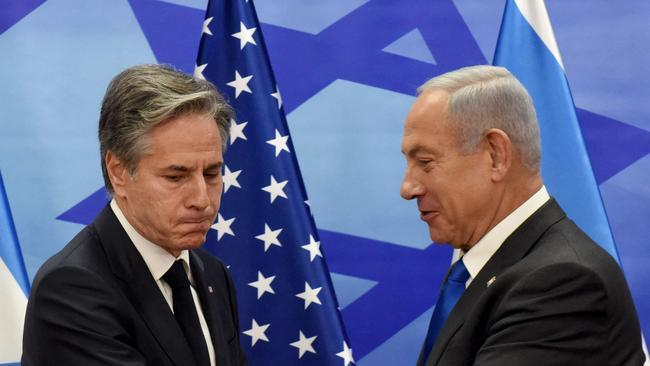
Israel’s military believes the war effort in Gaza urgently needs a civil authority to deliver humanitarian aid, restore order and basic services, and manage nearly two million displaced residents, according to Israeli officials. The bulging refugee population in a shrinking area of Gaza’s south, leading to a worsening humanitarian crisis, is greatly complicating Israeli forces’ effort to defeat Hamas there, officials and analysts say.
The US, Saudi Arabia and Egypt are also urging Israel to reach an agreement on who will govern Gaza after the war, including overseeing its reconstruction.
In the absence of a strategy, Israeli military officials warn that Hamas is already trying to regroup in Gaza City in the enclave’s north, where Israel withdrew several brigades after conquering the area late last year. This week, Israeli forces launched another operation against Hamas in parts of Gaza City they had previously withdrawn from.
“This is why we have all this tension between the military and the government. It’s impossible to achieve the goals of destroying Hamas as a military and political force unless you have an alternative,” said Ofer Fridman, a former Israeli officer and a war-studies expert at King’s College London. “You need a civil authority, a partner. A political decision is necessary.”
The Israeli bombardment and invasion of Gaza after Oct. 7 has killed more than 26,000 Palestinians, according to health authorities there, who don’t distinguish between combatants and civilians, and heaped international pressure on Israel.

Netanyahu has said that the aim of Israel’s invasion of Gaza is to eliminate Hamas, free the roughly 130 hostages still held in the enclave, and ensure the strip can never be used to attack Israel again like on Oct. 7. But the Israeli leader has said little about the thorny question of who should govern the Gaza Strip.
His far-right coalition partners want Israel to reoccupy Gaza and build settlements there – a plan unacceptable to Israel’s international partners, particularly Arab states that Israel hopes will fund reconstruction of the strip.
The US, Saudi Arabia and Egypt insist that an overhauled Palestinian Authority should oversee Gaza after Hamas. The Saudis have also offered to restart US-backed talks aimed at normalising diplomatic relations between Riyadh and Israel – a goal that Netanyahu supports – if Israel agrees to a process aimed at the creation of a Palestinian state. The US says the century-long conflict can’t be resolved without a Palestinian state.
Netanyahu’s far-right coalition partners, as well as much of his own right-wing Likud party, are strongly opposed to both involving the Palestinian Authority in running Gaza and to a future state for the Palestinians.

Netanyahu firmly rejected the idea of Palestinian statehood on Jan. 18, telling a news conference that Israel must keep “security control” of Gaza and the West Bank to prevent terrorist attacks. “It contradicts the idea of sovereignty” for the Palestinians, he said.
Israel’s military has proposed working with civilians in Gaza who have good standing in their community and aren’t affiliated with Hamas. Some government officials have also floated similar ideas.
But other government members say suitable people can’t be found. Some analysts warn that Hamas would try to assassinate Gazans who co-operate with Israel.
Some far-right government members say the Israeli military is the only alternative power to Hamas in Gaza. But the army is loath to reoccupy Gaza, which Israel pulled out of in 2005. Gallant, the defence minister, insists Palestinians must run the enclave.
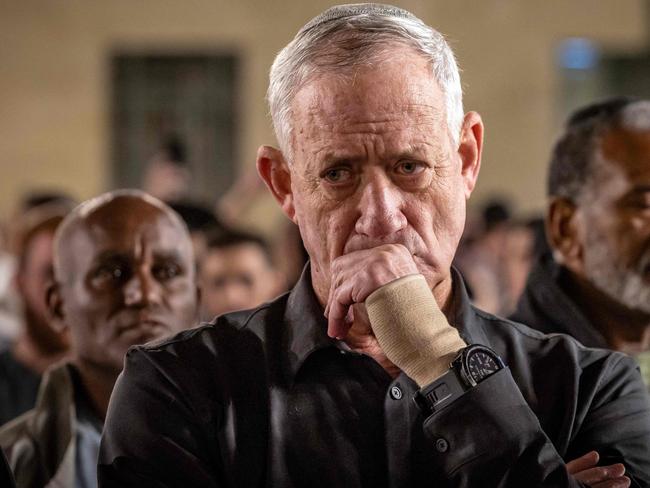
Most analysts say the answer must involve Gazans who aren’t in Hamas and some role for a revamped Palestinian Authority. Netanyahu’s national security adviser has said that could be the answer. But the premier himself hasn’t backed it.
No option is popular with Israelis, opinion polls suggest. Still, political analysts say the role of any prime minister is to make unpopular decisions in a time of crisis and explain why the national interest requires it.
“I find that if you have the right leader at the right time, the public opinion about things like the two-state solution could change very quickly,” said Wolfsfeld.
If elections were held now, polls say the National Unity Party of Benny Gantz would easily defeat Netanyahu’s Likud. Gantz has neither called for nor ruled out working with the Palestinian Authority and working toward a Palestinian state.
Gantz, who joined Israel’s war cabinet after Oct. 7, is widely seen as more flexible than Netanyahu on both issues. Netanyahu has attacked Gantz for being ambiguous. A Gantz-led coalition wouldn’t include the far-right parties that have constrained Netanyahu.
– Fatima AbdulKarim contributed to this article.
The Wall Street Journal


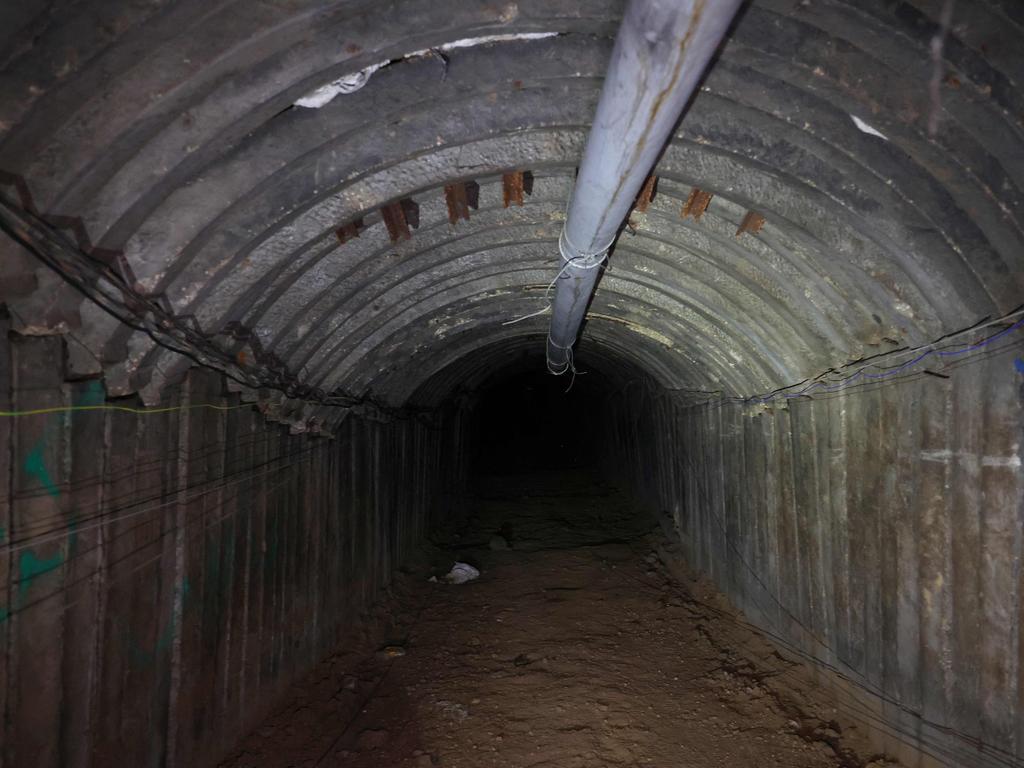



To join the conversation, please log in. Don't have an account? Register
Join the conversation, you are commenting as Logout